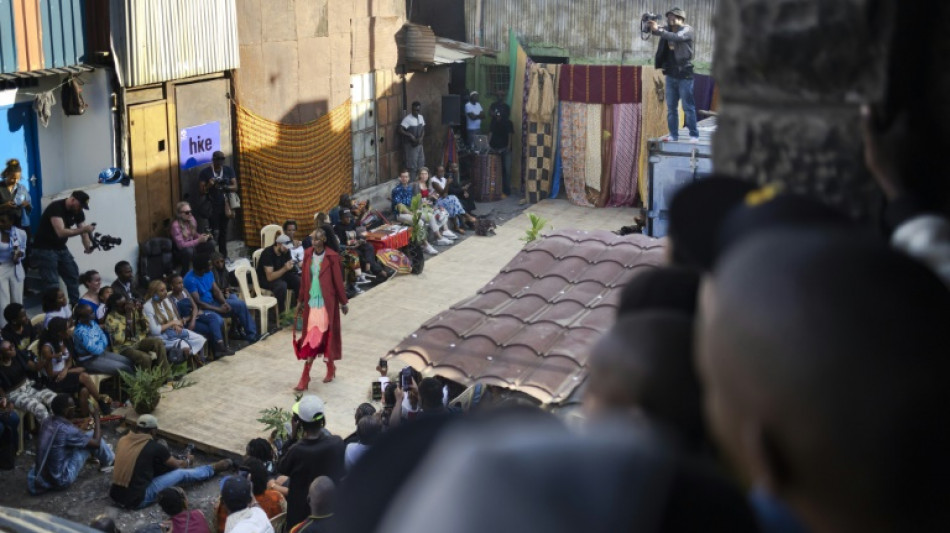
-
 Three killed in Taipei metro attacks, suspect dead
Three killed in Taipei metro attacks, suspect dead
-
Seven Colombian soldiers killed in guerrilla attack: army

-
 Amorim takes aim at Man Utd youth stars over 'entitlement'
Amorim takes aim at Man Utd youth stars over 'entitlement'
-
Mercosur meets in Brazil, EU eyes January 12 trade deal

-
 US Fed official says no urgency to cut rates, flags distorted data
US Fed official says no urgency to cut rates, flags distorted data
-
Rome to charge visitors for access to Trevi Fountain

-
 Spurs 'not a quick fix' for under-fire Frank
Spurs 'not a quick fix' for under-fire Frank
-
Poland president accuses Ukraine of not appreciating war support

-
 Stocks advance with focus on central banks, tech
Stocks advance with focus on central banks, tech
-
Amorim unfazed by 'Free Mainoo' T-shirt ahead of Villa clash

-
 PSG penalty hero Safonov ended Intercontinental win with broken hand
PSG penalty hero Safonov ended Intercontinental win with broken hand
-
French court rejects Shein suspension

-
 'It's so much fun,' says Vonn as she milks her comeback
'It's so much fun,' says Vonn as she milks her comeback
-
Moscow intent on pressing on in Ukraine: Putin

-
 UN declares famine over in Gaza, says 'situation remains critical'
UN declares famine over in Gaza, says 'situation remains critical'
-
Guardiola 'excited' by Man City future, not pondering exit

-
 Czechs name veteran coach Koubek for World Cup play-offs
Czechs name veteran coach Koubek for World Cup play-offs
-
PSG penalty hero Safonov out until next year with broken hand

-
 Putin says ball in court of Russia's opponents in Ukraine talks
Putin says ball in court of Russia's opponents in Ukraine talks
-
Czech Zabystran upsets Odermatt to claim Val Gardena super-G

-
 NGOs fear 'catastrophic impact' of new Israel registration rules
NGOs fear 'catastrophic impact' of new Israel registration rules
-
US suspends green card lottery after MIT professor, Brown University killings
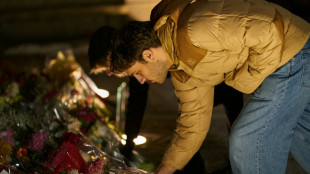
-
 Arsenal in the 'right place' as Arteta marks six years at club
Arsenal in the 'right place' as Arteta marks six years at club
-
Sudan's El-Fasher under the RSF, destroyed and 'full of bodies'
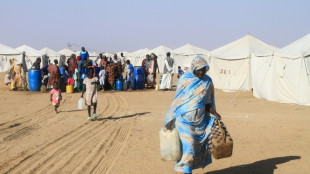
-
 From farms to court, climate-hit communities take on big polluters
From farms to court, climate-hit communities take on big polluters
-
Liverpool have 'moved on' from Salah furore, says upbeat Slot

-
 Norway crown princess likely to undergo lung transplant
Norway crown princess likely to undergo lung transplant
-
Iraq negotiates new coalition under US pressure
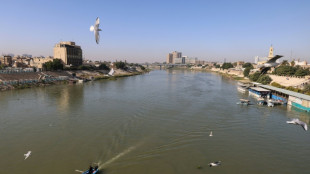
-
 France's budget hits snag in setback for embattled PM
France's budget hits snag in setback for embattled PM
-
Putin hails Ukraine gains, threatens more, in annual press conference

-
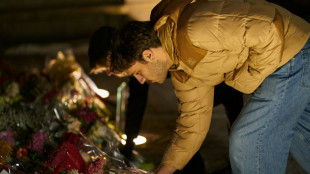 US suspends green card lottery after Brown, MIT professor shootings
US suspends green card lottery after Brown, MIT professor shootings
-
Chelsea's Maresca says Man City link '100 percent' speculation

-
 Dominant Head moves into Bradman territory with fourth Adelaide ton
Dominant Head moves into Bradman territory with fourth Adelaide ton
-
Arsenal battle to stay top of Christmas charts

-
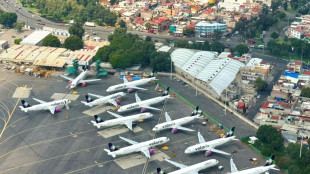 Mexican low-cost airlines Volaris and Viva agree to merger
Mexican low-cost airlines Volaris and Viva agree to merger
-
Border casinos caught in Thailand-Cambodia crossfire

-
 Australia's Head slams unbeaten 142 to crush England's Ashes hopes
Australia's Head slams unbeaten 142 to crush England's Ashes hopes
-
Epstein files due as US confronts long-delayed reckoning

-
 'Not our enemy': Rush to rearm sparks backlash in east Germany
'Not our enemy': Rush to rearm sparks backlash in east Germany
-
West Indies 110-0, trail by 465, after Conway's epic 227 for New Zealand

-
 Arsonists target Bangladesh newspapers after student leader's death
Arsonists target Bangladesh newspapers after student leader's death
-
Volatile Oracle shares a proxy for Wall Street's AI jitters

-
 Tears at tribute to firefighter killed in Hong Kong blaze
Tears at tribute to firefighter killed in Hong Kong blaze
-
Seahawks edge Rams in overtime thriller to seize NFC lead

-
 Teenager Flagg leads Mavericks to upset of Pistons
Teenager Flagg leads Mavericks to upset of Pistons
-
Australia's Head fires quickfire 68 as England's Ashes hopes fade

-
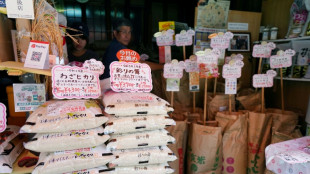 Japan hikes interest rates to 30-year-high
Japan hikes interest rates to 30-year-high
-
Brazil's top court strikes down law blocking Indigenous land claims
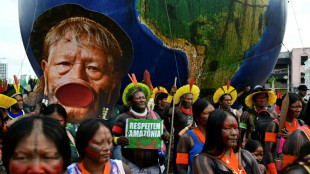
-
 Conway falls for 227 as New Zealand pass 500 in West Indies Test
Conway falls for 227 as New Zealand pass 500 in West Indies Test
-
'We are ghosts': Britain's migrant night workers
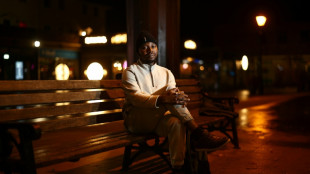

From waste to runway: Kenyan designers transform used clothes into art
In a dusty alley in the heart of Kenya's largest open-air market, fashion models strut down a makeshift runway in bold, upcycled outfits made from waste collected at dumpsites and market cast-offs -- proof that even trash can dazzle.
Every year, thousands of tonnes of used clothes from Europe, the United States, and beyond make their way to Kenya.
In 2023, Kenya overtook Nigeria to become Africa's largest importer of second-hand clothing according to a study from the US-based Massachusetts Institute of Technology (MIT).
Thousands of these bales land in Gikomba market near central Nairobi where tin-roofed stalls stretch across a five-acre labyrinth, one of the city's major economic hubs.
On a sunny afternoon last week, a huge crowd gathered to watch models sashay and pivot, showcasing pieces from bales once discarded as unwearable or unsellable.
"What? They've upgraded our clothes," one of the traders said with delight as he watched the show.
Gikomba Runway Edition brought together young, underground Kenyan designers and stylists for the first time, including 25-year-old "upcycling" specialist Morgan Azedy.
"I always see the environment around me dirty... I wanted to control pollution," he told AFP as he prepared his avant-garde outfits in his single-room home before the show.
His "Kenyan Raw" collection featured streetwear denim and a gothic flair crafted entirely from recycled leather sourced from dumpsites and fashion rejects.
- 'Just garbage' -
Kenya imported about 197,000 tonnes of second-hand clothes worth $298 million in 2023, according to the MIT study.
The Environment for Development, a global research network, estimates that around a third are unusable items that end up in landfills -- mostly made from plastic-based materials like nylon and polyester that does not biodegrade.
Olwande Akoth, a designer showcasing her upcycled kimonos at the fashion show, once traded in second-hand bales but often felt disheartened by their poor quality.
"It's just garbage... the clothes you can't even wear, you wouldn't even give to a beggar," Akoth said.
The influx of second-hand clothes has employed hundreds of thousands of people across East Africa, from port handlers to traders, and provided a lot of affordable clothing.
But it has also made it hard for domestic textile firms to get off the ground.
The East African Community of eight regional countries tried to impose a ban in 2016 in the hope of boosting local textile production.
But it was opposed by recycling lobbyists in the United States, and Washington threatened to kick the East African nations out of a lucrative trade deal called the African Growth and Opportunity Act (AGOA) that allowed them to sell products duty-free into the US.
Kenya, Tanzania, Uganda and others backed down. Only Rwanda held firm and was punished with a suspension from selling clothes under AGOA's preferential rates.
President Donald Trump's administration allowed AGOA to expire last month for the whole continent, although talks are under way to revive it.
- 'Uniqueness' -
For Azedy, the downside of the trade deals -- mountains of discarded clothes piling up in dumpsites -- is a treasure trove for his creative eye.
Buying new fabric, he said, is simply "too expensive".
On the runway, what was once an oversized pair of denim trousers has been transformed into a tiered, layered jacket paired with flared trousers and platform shoes.
His drive for "uniqueness" in repurposed pieces earned him a place at Berlin Fashion Week last year.
Having styled several regional musicians with his collection, Azedy now dreams of taking what others consider trash to the grand stages of New York and Paris.
D.Sawyer--AMWN